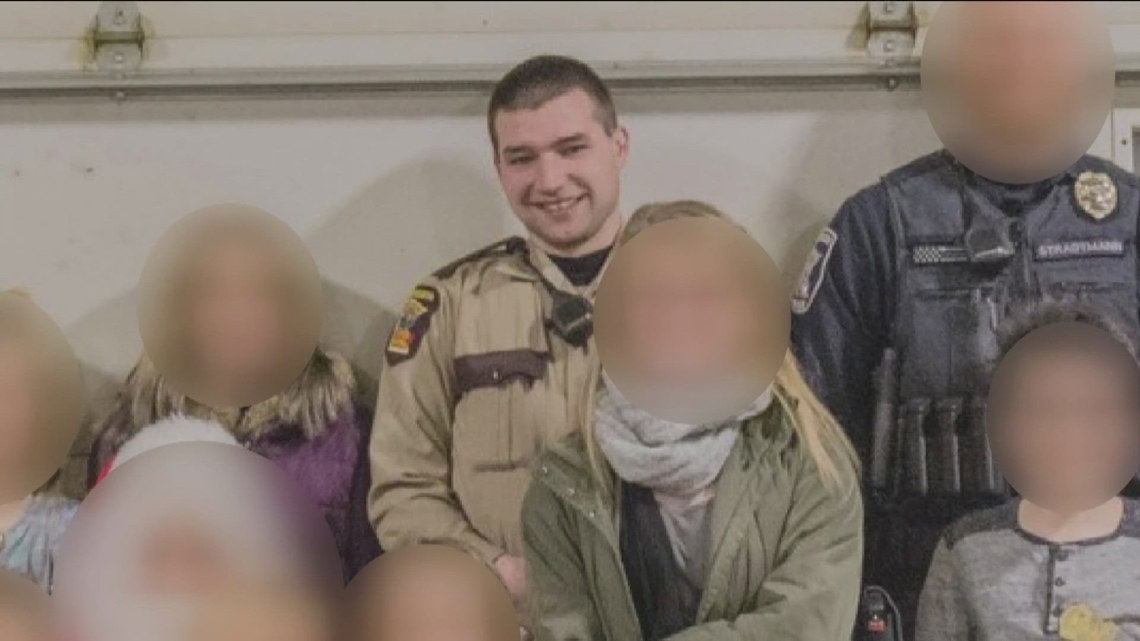Star Tribune
Arizona woman, 80, charged in St. Croix Falls cold case murder

An 80-year-old Arizona woman has been charged with one count of first-degree murder in the 1985 death of Yvonne Menke, who was found shot to death in a St. Croix Falls, Wis., stairwell.
Mary Josephine Bailey of Apache Junction, Ariz., lived near St. Croix Falls at the time of the murder and had been dating the same man as Menke, according to a criminal complaint. She was taken into custody Monday and was being held in Arizona awaiting extradition.
According to the complaint: Menke, 45, was shot three times on Dec. 12, 1985, when she stepped out of her apartment at about 6:25 a.m. to warm up her car before driving to work. Her daughter called the local police department after hearing what sounded like a gunshot and seeing someone running away from the apartment building at 121 ½ S. Washington St., St. Croix Falls.
The first police officer to the scene spoke to Menke’s daughter, who said “I knew something like this was going to happen.”
Numerous people told authorities that Bailey and Menke were both dating a local resident named Jack Owen, and that Bailey had been making threatening phone calls to the Menke family. Owen married a different woman and moved to Montana, dying there in 2021.
A boot print in the snow near the spot where Menke’s body was found matched a pair of boots that police later seized from Bailey’s house, the complaint added.
An autopsy by the Ramsey County Medical Examiner determined that Menke had been shot three times by a .22 caliber weapon, once in the left side of her neck and twice more in the head behind her right ear.
Investigators first spoke to Bailey the day after the murder, interviewing her at the bank in Luck, Wis., where she worked. She told police she had stopped dating Owen three years earlier. She also said she had a .22 caliber pistol from her ex-husband.
A witness who was not identified by name in the complaint, told authorities at the time of the murder that she believed Bailey was upset after not being invited to Owen’s birthday party the night before Menke’s murder. The witness told police that Bailey was knowledgeable about firearms.
The investigation, detailed in a 39-page criminal complaint, continued for several years as authorities spoke to Bailey, Owen, and people who knew them.
Two witnesses were re-interviewed in 2009. In 2021, investigators with the Polk County Sheriff’s Office dug into the case again, speaking to witnesses and reviewing evidence.
Some of the witnesses who had spoken about the case in the past revealed fresh evidence, including that Bailey had been emotionally upset the night before Menke’s murder. Another witness told authorities that after Menke was killed, Bailey had asked them to burn some clothing for her.
When investigators told Bailey that she would likely be charged for Menke’s death, “Mary Jo did not respond and continued to sit at the table without any emotional or verbal response,” the complaint said.
Star Tribune
Minnesotans reflect on Biden’s apology

Lt. Gov. Peggy Flanagan and her daughter were among the throngs Friday as President Joe Biden delivered the apology that many Indigenous Americans thought would never come.
“I think he really said the things that people have been waiting to hear for generations, acknowledged just the horror and trauma of literally having our children stolen from our communities,” said Flanagan, a member of the White Earth Band of Ojibwe. “It’s a powerful first step towards healing.”
Hundreds of boarding schools operated in the 19th and 20th centuries, separating Indigenous children from their families and forcing them to assimilate to European ways. Many children were abused, and at least 973 died, according to a report from the U.S. Department of the Interior.
Other Minnesotans reacted similarly to Flanagan, saying they welcomed the apology but that additional action is needed to help Indigenous people move forward.
Anton Treuer, a professor of Ojibwe at Bemidji State University, wrote in a newsletter that the apology was “a welcome first step on the journey to healing.”
“There is no way to truly right historical injustices for the children buried at Carlisle, Haskell, and other schools, but these words set a new tone for the country and will help heal the anguish so many Natives have carried for so long,” Treuer wrote. “It gives me hope that we can come together to reconcile and heal our troubled nation.”
Sen. Mary Kunesh, DFL-New Brighton, the first Indigenous woman to serve in the state Senate, called Biden’s apology encouraging.
“This recognition of past wrongdoings is an important step towards healing relationships between the United States and the sovereign nations affected by these past systems,” Kunesh said in a statement. “This dark period of American history must be remembered and taught.”
Star Tribune
MPD on defensive after man shot in neck allegedly by neighbor on harassment tirade

“I have done everything in my power to remedy this situation, and it continues to get more and more violent by the day,” Moturi wrote. “There have been numerous times when I’ve seen Sawchak outside and contacted law enforcement, and there was no response. I am not confident in the pursuit of Sawchak given that Sawchak attacked me, MPD officers had John detained, and despite an HRO and multiple warrants — they still let him go.”
On Friday, five City Council members sent a letter to Mayor Jacob Frey and Police Chief Brian O’Hara expressing their “utter horror at MPD’s failure to protect a Minneapolis resident from a clear, persistent and amply reported threat posed by his neighbor.”
Council Members Andrea Jenkins, Elliott Payne, Aisha Chughtai, Jason Chavez and Robin Wonsley went on to allege that police had failed to submit reports to the County Attorney’s Office despite threats being made with weapons, and at times while Sawchak screamed racial slurs. Sawchak is white and Moturi is Black.
The council members also contend in their letter that the MPD told the County Attorney’s Office that police did not intend to execute the warrant for “reasons of officer safety.”
At a Friday afternoon news conference at MPD’s Fifth Precinct, O’Hara said police had been working to arrest Sawchak since at least April, but “no Minneapolis police officers have had in-person contact with that suspect since the victim in this case has been calling us.” The chief pointed out that Sawchak is mentally ill, has guns and refuses to cooperate “in the dozens of times that police officers have responded to the residence.”
O’Hara put aside the option to carry out “a high-risk warrant based on these factors [and] the likelihood of an armed, violent confrontation where we may have to use deadly force with the suspect.” The preference, he said, was to arrest Sawchak outside his home, but “in this case, this suspect is a recluse and does not come out of the house.”
Star Tribune
Rochester lands $85 million federal grant for rapid bus system

ROCHESTER – The Federal Transit Administration has green-lighted an $85 million grant supporting the development of the city’s planned Link Bus Rapid Transit system.
The FTA formally announced the grant on Friday during a ceremonial check presentation outside of the Mayo Civic Center, one of the seven stops planned for the bus line. The federal grant will cover about 60% of the project’s estimated $143.4 million price tag, with the remaining funds coming from Destination Medical Center, the largest public-private development project in state history.
Set to go live in 2026, the 2.8-mile Link system will connect downtown Rochester, including Mayo Clinic’s campuses, with a proposed “transit village” that will include parking, hundreds of housing units and a public plaza. The bus line will be the first of its kind outside the Twin Cities — with service running every five minutes during peak hours.
“That means you may not even need to look at a schedule,” said Veronica Vanterpool, deputy administrator for the FTA. “You can just show up at your transit stop and expect the next bus to come in a short time. That is a game changer and a life-transformational experience in transit for those people who are using it and relying on it.”
The planned Second Street corridor is already one of the busiest roads in Rochester, carrying more than 21,800 vehicles a day, and city planners have talked for years about ways to reduce traffic congestion in the city’s downtown. Local officials estimate that the transit line, which will rely on a fleet of all-electric buses, will handle 11,000 riders on its first day of operation and save eight city blocks of parking.
Speaking to a crowd of about 100 people gathered on Friday, Sen. Amy Klobuchar said the project shows Rochester is thinking strategically about how it handles growth.
“If you just plan the business expansion, and you don’t have the workforce, you don’t have the child care, the housing or the transit, it’s not going to work very well as a lot of communities across the nation have found,” Klobuchar said.





GIPHY App Key not set. Please check settings